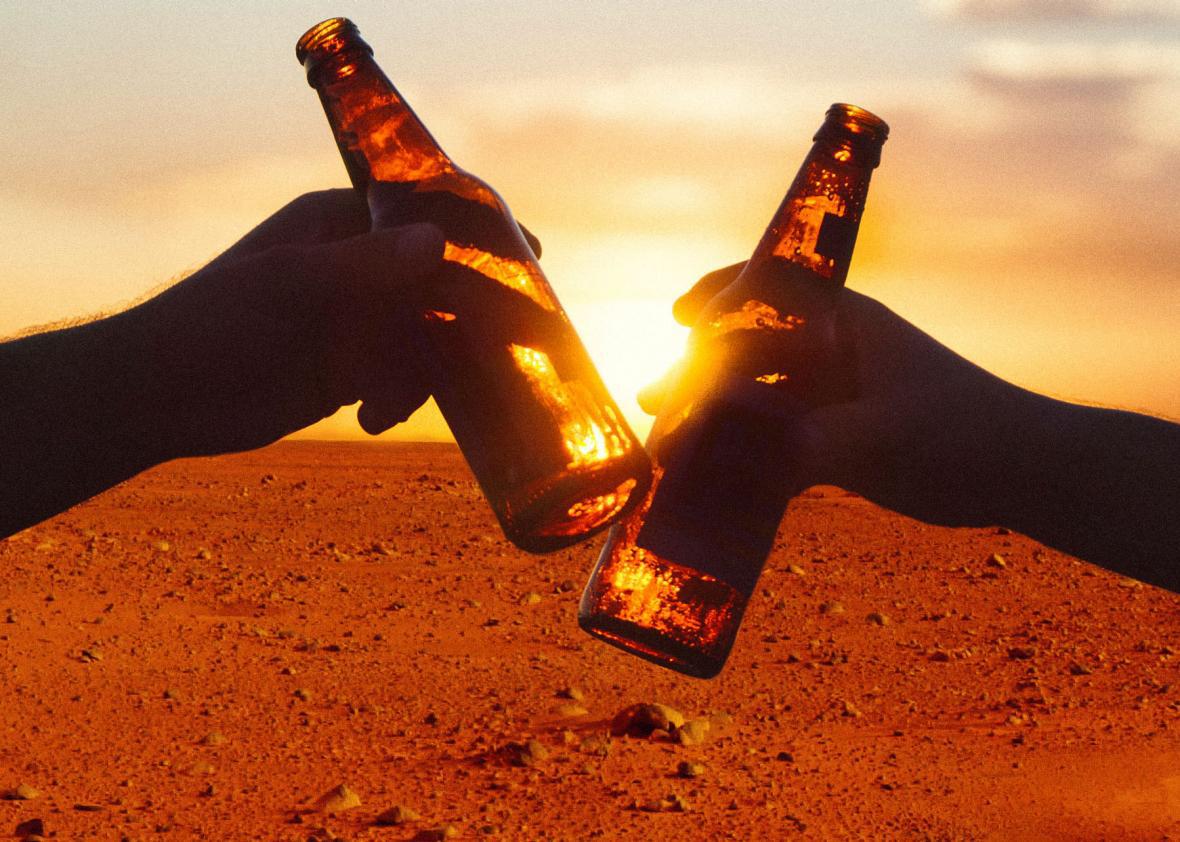Last spring, Budweiser declared its intention to be the beer of choice for future Martian colonists seeking a cold one in space. The company will take one giant step for beerkind on Dec. 4, when a SpaceX Falcon 9 rocket will take Budweiser’s barley seeds from Cape Canaveral in Florida up to the International Space Station.
The seeds, a small part of a big cargo resupply mission to the ISS, are part of Anheuser-Busch’s (Budweiser’s parent company) plans to conduct two new experiments aboard the space station in order to examine how its barley seeds will behave in a microgravity environment as well as whether those seeds could actually germinate in space. The monthlong experiments, run in partnership with the nonprofit Center of Advancement of Science in Space, are the first part of Anheuser-Busch’s overall efforts to better understand what extraterrestrial environments do to the ingredients needed to brew beer.
What will beer brewing look like in space? Martian gravity, which is one-third as strong as Earth’s gravity, will do a number on the process as well as the ingredients necessary to the brewing process. (Those would be water, rice, barley, yeast, and hops.) The new pair of experiments is a good start to understanding how space will affect barley. NASA is already well on its way in investigating the effects of weightlessness on yeast growth. Yeast can only survive a very narrow range of temperature, but assuming that issue can be taken care of, microgravity so far doesn’t seem to pose much of a problem for yeast (no real surprise there, given how small the single-cell microorganisms are).
Growing hops on Mars would be complicated by the plants’ need of sunlight, which means we’ll probably need artificial growth lights, as would any other terrestrial plants future agriculturists might try to grow on the red planet.
Water is another issue. Though the world celebrated the discovery of liquid water on the surface of Mars in 2015, the limited amount of water flowing on the surface is thought to be extremely salty. Using it to brew beer would create a pretty bitter flavor, so we’d probably be wise to desalinate that water (just as we would if we wanted to drink it).
Speaking of which, taste is going to be an issue brewers will have to figure out when brewing space beer. Astronauts are notoriously famous for dumping hot sauce on their meals, because the lack of gravity allows body fluids to fill up nasal passages and annihilates their ability to taste properly. That effect won’t be as extreme on Mars as it is in outer space, but the taste of lighter beers will probably suffer a bit on the red planet.
If Budweiser is able to resolve all of those challenges, it will still be left with one issue: the foam. Earth’s gravity and pressure do a pretty great job making sure bubbles rise up, allowing froth to peak into a head and then settle down. Mars’ atmospheric pressure won’t accomplish this as well, meaning you could be left with a drink that’s much foamier than you expect. Even worse, the attenuated Martian gravity won’t pull liquids to the bottom of the stomach as readily, so you’ll be burping more than you’re used to.
Why go through all the hassle of making beer brewable on Mars? Humans have fermented beer since the dawn of civilization. It’s the oldest alcoholic beverage we’ve ever known. There is no way we’ll readily accept a future in space that is without it—especially on a planet as hellaciously cold and dry as Mars.
